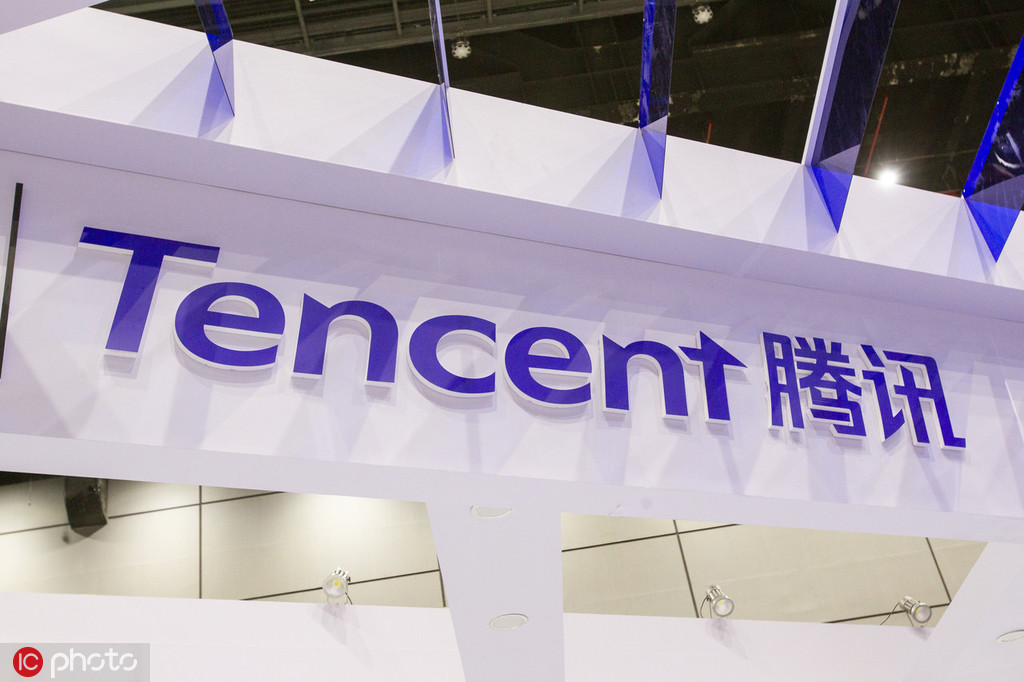Tencent starts collaboration on Parkinson's


Chinese giant to partner with UK firm on clinical trial using AI technology
Collaboration between Chinese technology giant Tencent and London-based startup Medopad in the realm of artificial intelligence that will target Parkinson's disease is being greeted by experts in the United Kingdom as an example of a "win-win partnership".
According to a Financial Times report, Tencent is conducting trials with the relatively unknown UK digital health startup that are aimed at developing and validating algorithms that the companies hope will be able to predict complications across a range of disease indications, including Parkinson's, cancer, and heart disease.
"It will be an opportunity for Tencent to gain data access and credibility, whilst also potentially providing an opportunity for Medopad to develop their operations in China," said David Barber, director of the Centre for artificial Intelligence at University College London.
Syrus Lohrasb, founder of the China-Britain artificial Intelligence Summit, echoed Barber's view, saying: "A win-win partnership that can potentially open data gateways on both sides and data feeding algorithm is the key to developing next-level intellectual property. When it comes to innovation and technologies in particular data, it's not about size; it's about the caliber of talent and management, accesses to data, and intellectual property. Medopad fi ts the bill."
The development of artificial intelligence, which is also known as AI, has been a top priority of China's government in recent years. In this year's Government Work Report, Premier Li Keqiang emphasized that AI technology should be strengthened in emerging industries to improve the core competitiveness of the sectors and to improve the nation's science and technology industries.
Given that the UK harbors four of the world's top 20 universities and has an abundance of AI talents while China has a relative shortage of such talents, Lohrasb said it makes sense for China to target the UK when looking for partnership and places to open AI labs.
Founded in 2011 by Dan Vahdat and Rich Khatib, Medopad has built a smartphone app and wearable devices to monitor patients with various medical conditions, enabling doctors to gather information about patients in order to better understand and treat them.
"Medopad and Tencent have partnered to bring AI and predictive analytics to the world of medicine," said a statement from Medopad. "One of the first joint projects is the development of an AI technology system to support Parkinson's patients and their clinicians.
"The Markerless Motion Capture and Analysis System provides a highly accurate, real-time assessment of facial features and joint movements, identifying the frequency, range, and intensity of movement. The system is currently under clinical trial evaluation."
The clinical trial taking place at Dementech Neurosciences involves around 40 patients and is slated to be completed in the coming months. More than 30 Medopad staff and 35 from Tencent are involved, according to FT.
Given China's huge population, Barber says it is natural for the country to want to design and develop treatments and diagnoses.
"Diagnoses and treatments have historically mainly been developed in the West," Barber said. "It makes sense to therefore invest in opportunities that can improve diagnosis and treatment of disease for an Asian population and I think investors see huge opportunities in this space."
Tencent's collaboration with Medopad is seen as another example of the trend of Chinese tech companies working with British digital health startups.
He Shaowei, an associate professor in international business at the University of Northampton, said: "The political environment in the UK is much more benign to Chinese investment compared to the USA, and we believe that there will be more similar deals like this in the coming years.
"Undertaking clinical trials in the UK would help Chinese firms to get familiarized with the institutions and regulatory framework which may help them in later globalization endeavors in other developed markets."
Lohrasb added: "China loves the UK heritage and culture and finds it easier to build relationships here. Given access to NHS data, UK healthcare companies can white-label Chinese technology under their own intellectual property."
Unlike the situation in the UK and in European nations, the AI landscape in China is driven by innovation with strong support from the state. Lohrasb argues that British companies can potentially benefit from China's freer approach when assisting their Chinese counterparts with AI development within China.




































